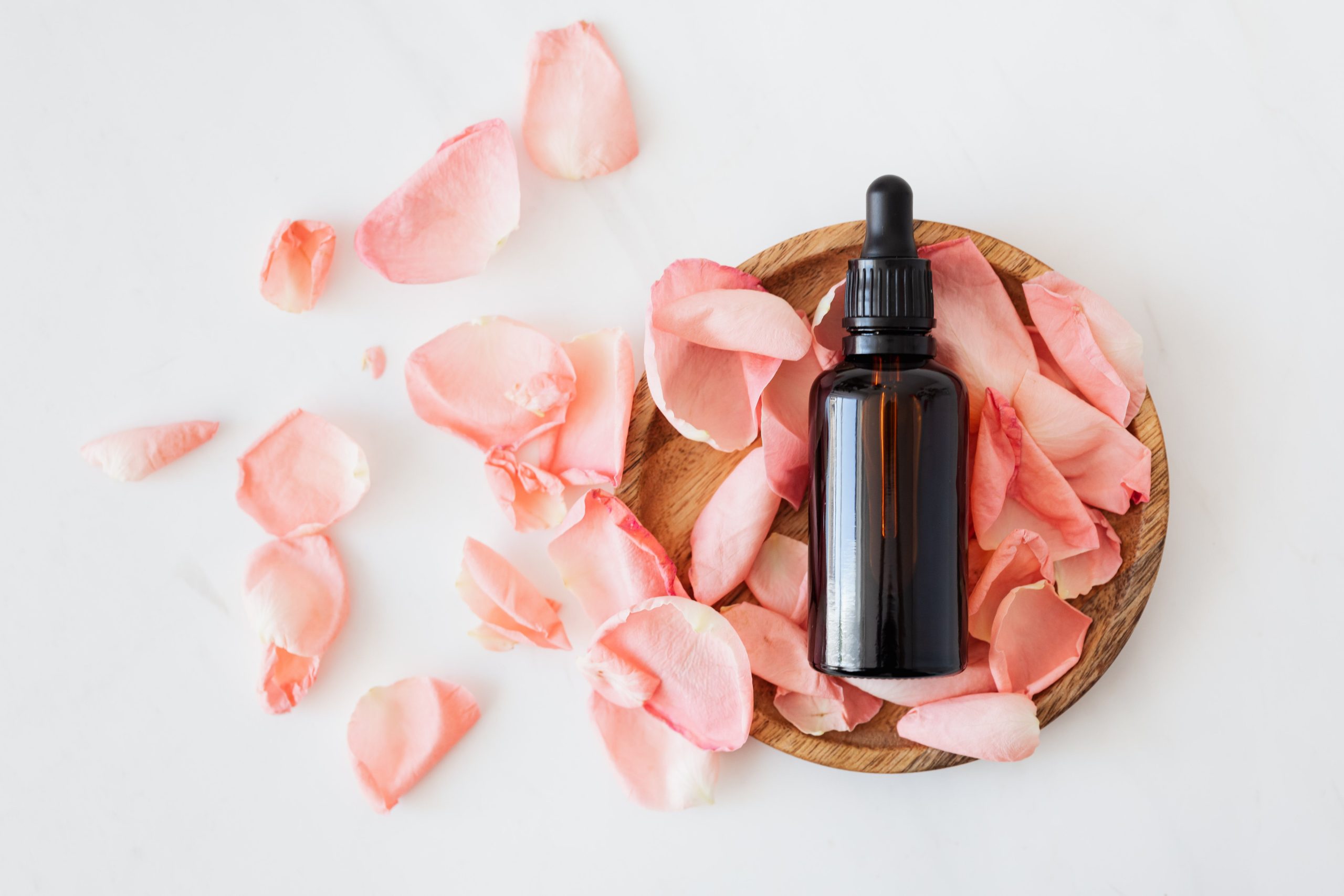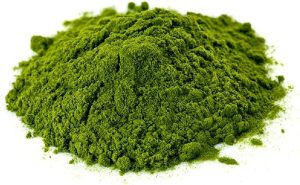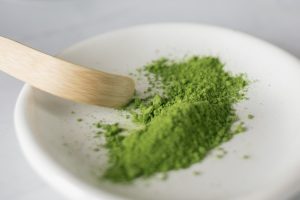
- Overview of Zinc
- Brief History of Zinc
- Functions of Zinc
- Recommended Daily Intake (RDI), Recommended Dietary Allowance (RDA), Adequate Intake (AI), or Reference Nutrient Intake (RNI) for Zinc
- Deficiency of Zinc
- Food Sources of Zinc and Where to Get It From
- Zinc and Its Interaction with Other Medications
- Websites to Probe Into for Information on Zinc
- Disclaimer
Overview of Zinc
Zinc, an essential mineral, holds diverse significance in medicine, contributing to critical physiological processes. It is a pivotal element in immune function, influencing the body’s defense mechanisms against infections. Additionally, zinc plays a key role in wound healing, aiding in the regeneration of tissues, and is an essential cofactor for enzymes involved in DNA synthesis, cell division, and protein metabolism. The multifaceted involvement of zinc in these fundamental processes underscores its importance in supporting overall health and addressing specific medical needs.
In the realm of medicine, zinc supplementation is employed to treat deficiencies, enhance immune function, and promote the healing of wounds, particularly in dermatological conditions. Its potential antiviral properties have also been a subject of exploration. However, it’s crucial to maintain a balanced approach to zinc intake, as excessive amounts can lead to adverse effects. Understanding the nuanced role of zinc in medicine allows healthcare professionals to leverage its therapeutic benefits while avoiding potential risks associated with imbalances.
Brief History of Zinc
The medicinal use of zinc dates back thousands of years, with historical evidence suggesting its application in various cultures:
- Ancient Civilizations:
- In ancient times, zinc-containing ores were recognized for their healing properties. The Egyptians used zinc compounds for eye-related ailments, and the Greeks applied zinc-rich ointments for wound healing.
- India and China:
- Traditional medicinal systems like Ayurveda in India and Traditional Chinese Medicine acknowledged the therapeutic value of zinc. It was employed to treat various conditions, including skin disorders and digestive issues.
- 16th Century Europe:
- European alchemists began isolating zinc in the 16th century, but its medicinal properties were not fully understood at the time. Nonetheless, zinc compounds were used in remedies for skin ailments.
- 19th Century:
- Advances in chemistry and medicine led to a deeper understanding of zinc’s role in the body. The 19th century saw increased recognition of zinc as an essential element for health.
- 20th Century:
- Zinc’s significance in enzymatic reactions and immune function became more apparent in the 20th century. Zinc supplements gained prominence for addressing zinc deficiencies and supporting overall health.
- Zinc Lozenges for Colds:
- In more recent decades, zinc lozenges have been explored for their potential in reducing the duration and severity of common cold symptoms, showcasing zinc’s antiviral properties.
Certainly! Here’s the information organized in a table format:
| Period | Development and Use of Zinc |
|---|---|
| Ancient Civilizations | In ancient times, zinc-containing ores were recognized for their healing properties. The Egyptians used zinc compounds for eye-related ailments, and the Greeks applied zinc-rich ointments for wound healing. |
| India and China | Traditional medicinal systems like Ayurveda in India and Traditional Chinese Medicine acknowledged the therapeutic value of zinc. It was employed to treat various conditions, including skin disorders and digestive issues. |
| 16th Century Europe | European alchemists began isolating zinc in the 16th century, but its medicinal properties were not fully understood at the time. Nonetheless, zinc compounds were used in remedies for skin ailments. |
| 19th Century | Advances in chemistry and medicine led to a deeper understanding of zinc’s role in the body. The 19th century saw increased recognition of zinc as an essential element for health. |
| 20th Century | Zinc’s significance in enzymatic reactions and immune function became more apparent in the 20th century. Zinc supplements gained prominence for addressing zinc deficiencies and supporting overall health. |
| Zinc Lozenges | In more recent decades, zinc lozenges have been explored for their potential in reducing the duration and severity of common cold symptoms, showcasing zinc’s antiviral properties. |
Today, zinc is widely recognized as an essential micronutrient crucial for various physiological functions. It is incorporated into dietary supplements and medications, highlighting its enduring role in the history and progress of medical science.
Functions of Zinc
Zinc serves crucial functions in medicine, playing diverse roles in physiological processes essential for overall health. Some key functions of zinc in medicine include:
- Immune System Support:
- Zinc is vital for immune function, influencing the development and activity of white blood cells. It plays a role in the body’s defense against infections and helps regulate inflammation.
- Wound Healing:
- Zinc is integral to the wound healing process, contributing to cell division, tissue repair, and the synthesis of collagen, a structural protein crucial for skin integrity.
- Enzyme Cofactor:
- Zinc acts as a cofactor for numerous enzymes involved in various biochemical reactions, including DNA synthesis, protein metabolism, and carbohydrate digestion.
- Antioxidant Defense:
- As a component of the antioxidant enzyme superoxide dismutase (SOD), zinc helps neutralize harmful free radicals, protecting cells from oxidative stress and damage.
- Growth and Development:
- Zinc is essential for normal growth and development, especially during infancy, childhood, and adolescence. It plays a role in DNA replication and cell division.
- Reproductive Health:
- Zinc is crucial for reproductive health in both men and women. It is involved in sperm production, and zinc deficiency can impact fertility and pregnancy outcomes.
- Neurological Function:
- Zinc plays a role in neurotransmitter regulation and overall neurological function. It is involved in learning and memory processes and may have implications for neurodegenerative disorders.
- Treatment of Diarrhea:
- Zinc supplementation is recommended for the treatment of acute diarrhea, particularly in children. It can help reduce the duration and severity of diarrhea episodes.
- Dermatological Conditions:
- Topical zinc preparations are used in dermatology for conditions like acne and diaper rash. Zinc oxide is a common ingredient in sunscreens for its protective and soothing properties.
- Antiviral Properties:
- Zinc has been investigated for its potential antiviral effects, particularly in reducing the replication of certain viruses. It may be explored in the management of viral infections.
Understanding the multifaceted functions of zinc in medicine highlights its importance as an essential micronutrient. Adequate zinc intake is crucial for maintaining optimal health, and both dietary sources and supplements are utilized to address deficiencies and support specific medical conditions.
Recommended Daily Intake (RDI), Recommended Dietary Allowance (RDA), Adequate Intake (AI), or Reference Nutrient Intake (RNI) for Zinc
The Recommended Dietary Allowance (RDA) for zinc can vary based on factors such as age, sex, and life stage. The values provided below are based on the dietary reference intakes established by the National Institutes of Health (NIH) for the United States:
- Infants (0-12 months):
- RDA:
- 2 mg/day
- RDA:
- Children (1-18 years):
- RDA:
- 3 mg/day for children 1-3 years
- 5 mg/day for children 4-8 years
- 8 mg/day for children 9-13 years
- 11 mg/day for adolescents 14-18 years (boys)
- 9 mg/day for adolescents 14-18 years (girls)
- RDA:
- Adults (19 years and older):
- RDA:
- 11 mg/day for men
- 8 mg/day for women
- 11 mg/day for pregnant women
- 12 mg/day for lactating women
- RDA:
| Population | Recommended Dietary Allowance (RDA) for Zinc |
|---|---|
| Infants (0-12 months) | 2 mg/day |
| Children (1-18 years) | |
| 3 mg/day for children 1-3 years | |
| 5 mg/day for children 4-8 years | |
| 8 mg/day for children 9-13 years | |
| 11 mg/day for adolescents 14-18 years (boys) | |
| 9 mg/day for adolescents 14-18 years (girls) | |
| Adults (19 years and older) | |
| 11 mg/day for men | |
| 8 mg/day for women | |
| 11 mg/day for pregnant women | |
| 12 mg/day for lactating women |
These values represent the amount of elemental zinc, and it’s important to consider both dietary sources and, if necessary, supplements to meet these recommendations. It’s also advisable to consult with healthcare professionals for personalized recommendations, especially for individuals with specific health conditions or dietary concerns. Since nutritional guidelines may be updated, checking with authoritative sources for the latest information is recommended.
Deficiency of Zinc
Zinc deficiency occurs when the intake or absorption of zinc is insufficient to meet the body’s needs. Zinc is an essential micronutrient, and its deficiency can lead to various health issues. Some signs and symptoms of zinc deficiency include:
- Impaired Immune Function:
- Zinc is crucial for immune system function. Deficiency may result in increased susceptibility to infections and a weakened immune response.
- Delayed Wound Healing:
- Zinc is essential for the synthesis of collagen and tissue repair. A deficiency can lead to delayed wound healing and impaired skin integrity.
- Growth Retardation:
- In children, zinc deficiency can hinder normal growth and development. It may result in growth retardation, delayed sexual maturation, and cognitive deficits.
- Dermatological Issues:
- Skin problems such as dermatitis and rashes may occur with zinc deficiency. Conditions like acne and eczema might worsen.
- Loss of Taste and Smell:
- Zinc plays a role in sensory perception. Deficiency may lead to a reduced sense of taste and smell.
- Hair Loss:
- Zinc deficiency can contribute to hair loss and affect the health of nails.
- Neurological Symptoms:
- Cognitive and neurological symptoms, including difficulty concentrating and learning difficulties, may be observed in cases of severe deficiency.
- Reproductive Issues:
- Zinc is crucial for reproductive health. In both men and women, deficiency can lead to fertility issues and complications during pregnancy.
- Impaired Appetite:
- Loss of appetite and weight loss may occur in individuals with zinc deficiency.
- Impaired Night Vision:
- Zinc is involved in the function of retinal cells. Deficiency may result in impaired night vision.
Zinc deficiency can be caused by inadequate dietary intake, poor absorption, increased losses (e.g., through diarrhea), certain medical conditions, or an increased demand for zinc during periods such as pregnancy and lactation. Diagnosing zinc deficiency often involves assessing symptoms, dietary intake, and, in some cases, laboratory tests measuring zinc levels in blood or hair.
It’s important to address zinc deficiency through dietary changes, supplementation, or medical intervention under the guidance of healthcare professionals. Individuals with concerns about their zinc status should consult with a healthcare provider for proper evaluation and management.
Food Sources of Zinc and Where to Get It From
Zinc is found in various foods, and incorporating a diverse and balanced diet can help ensure an adequate intake of this essential mineral. Here are some common food sources of zinc:
- Meat and Poultry:
- Beef, pork, lamb, and poultry (such as chicken and turkey) are rich sources of zinc. Red meats, in particular, tend to have higher zinc content.
- Seafood:
- Fish and shellfish, especially oysters, are excellent sources of zinc. Oysters, in particular, contain a high concentration of zinc.
- Dairy Products:
- Dairy foods like milk, cheese, and yogurt contain moderate amounts of zinc. Choose varieties that are fortified with zinc for an extra boost.
- Eggs:
- Eggs, particularly the yolk, contain zinc. Including eggs in the diet provides various essential nutrients, including zinc.
- Legumes:
- Legumes, such as beans, lentils, and chickpeas, are good plant-based sources of zinc. However, plant-based sources may contain compounds that can reduce zinc absorption.
- Nuts and Seeds:
- Nuts and seeds, including pumpkin seeds (pepitas), sunflower seeds, almonds, and cashews, provide zinc. These can be enjoyed as snacks or added to meals.
- Whole Grains:
- Whole grains like wheat, oats, and quinoa contain zinc. However, they also contain compounds that may inhibit zinc absorption, so variety in the diet is important.
- Fortified Foods:
- Some foods, such as breakfast cereals, may be fortified with zinc. Check food labels for information on added nutrients.
- Vegetables:
- Certain vegetables, including mushrooms, spinach, and kale, provide smaller amounts of zinc. While not as high as in animal products, these contribute to overall intake.
- Dark Chocolate:
- Dark chocolate, in moderation, can be a source of zinc. Choose chocolate with higher cocoa content for increased nutritional benefits.
Ensuring a mix of zinc-rich foods in the diet is essential for meeting daily requirements. It’s worth noting that factors such as food processing, soil quality, and individual dietary habits can influence the zinc content in foods. If there are concerns about zinc intake, consultation with a healthcare professional or a registered dietitian is advisable for personalized guidance.
Zinc and Its Interaction with Other Medications
Zinc interactions with medications are not as extensively studied as some other minerals, but there are considerations to keep in mind. Here are some points regarding the interaction of zinc with certain medications:
- Antibiotics:
- Zinc may interact with certain antibiotics, particularly tetracyclines and quinolones. It is advisable to separate the administration of zinc supplements and these antibiotics by a few hours to avoid potential interference with absorption.
- Iron Supplements:
- Zinc and iron compete for absorption in the gastrointestinal tract. Taking high doses of zinc supplements concurrently with iron supplements may reduce the absorption of both minerals. It’s often recommended to space out the intake of these supplements.
- Penicillamine:
- Penicillamine, a medication used for rheumatoid arthritis and Wilson’s disease, may bind with zinc, reducing its absorption. Individuals taking penicillamine may need to monitor their zinc levels and consider supplementation if necessary.
- Diuretics:
- Diuretics, especially thiazide diuretics, can increase the excretion of zinc through urine. Individuals on long-term diuretic therapy may need to monitor their zinc levels and consider supplementation if deficiencies arise.
- Corticosteroids:
- Long-term use of corticosteroids may increase the urinary excretion of zinc. Monitoring zinc status and considering supplementation may be appropriate in individuals on prolonged corticosteroid therapy.
- ACE Inhibitors:
- Some studies suggest that ACE inhibitors, a class of medications used for hypertension, may increase zinc levels. However, the clinical significance of this interaction is not fully understood.
- Chloroquine and Hydroxychloroquine:
- These medications, used for malaria and certain autoimmune conditions, may interact with zinc. The combination may have additive effects on zinc levels, and monitoring is recommended.
It’s important for individuals to inform their healthcare providers about all medications and supplements they are taking. Healthcare professionals can assess the potential for interactions based on an individual’s specific medications, health status, and nutritional needs. Adjustments to medication timing or doses may be recommended to optimize the effectiveness of both medications and zinc supplementation.
As always, personalized advice from a healthcare professional is crucial, and individuals should consult with their healthcare provider before making significant changes to their medication or supplement regimen.
Websites to Probe Into for Information on Zinc
Here’s a brief overview of zinc and some information from the verified websites:
- WebMD – Zinc:
- WebMD – Zinc provides general information about zinc, its uses, side effects, and interactions with other substances.
- Mayo Clinic – Zinc:
- The Mayo Clinic – Zinc page offers insights into the uses, dosage, precautions, and potential side effects of zinc.
- Healthline – Zinc Supplements:
- Healthline – Zinc Supplements discusses the benefits of zinc supplements, their potential side effects, and food sources rich in zinc.
- Medical News Today – Zinc:
- Medical News Today – Zinc provides an overview of zinc, its functions in the body, dietary sources, and potential health benefits.
- Mount Sinai Health Library – Zinc:
- Mount Sinai – Zinc offers information on the uses, dosage, and potential interactions of zinc as a supplement.
- Cleveland Clinic – Zinc Acetate Capsules:
- The Cleveland Clinic – Zinc Acetate Capsules page specifically focuses on zinc acetate capsules, including their uses and precautions.
- HealthDirect – Zinc:
- HealthDirect – Zinc provides general information on zinc, including dietary sources and potential health benefits.
- RxList – Zinc:
- RxList – Zinc offers information on zinc supplements, their uses, and potential side effects.
- Drugs.com – Zinc:
- Drugs.com – Zinc provides details on zinc supplements, their uses, precautions, and potential drug interactions.
- NIH Office of Dietary Supplements – Zinc:
- The NIH ODS – Zinc provides a comprehensive fact sheet on zinc, covering its functions, recommended dietary allowances, and sources.
- MedlinePlus – Zinc:
- MedlinePlus – Zinc offers information on zinc, its role in the body, dietary sources, and potential health implications.
Disclaimer
The information is solely provided for educational purposes. It is not intended to diagnose, treat, cure, or prevent any disease. Seek the advice of your physician or qualified healthcare provider with any questions you may have regarding a medical condition at all times. Never disregard professional medical advice because of something you have read or learned from this article.






